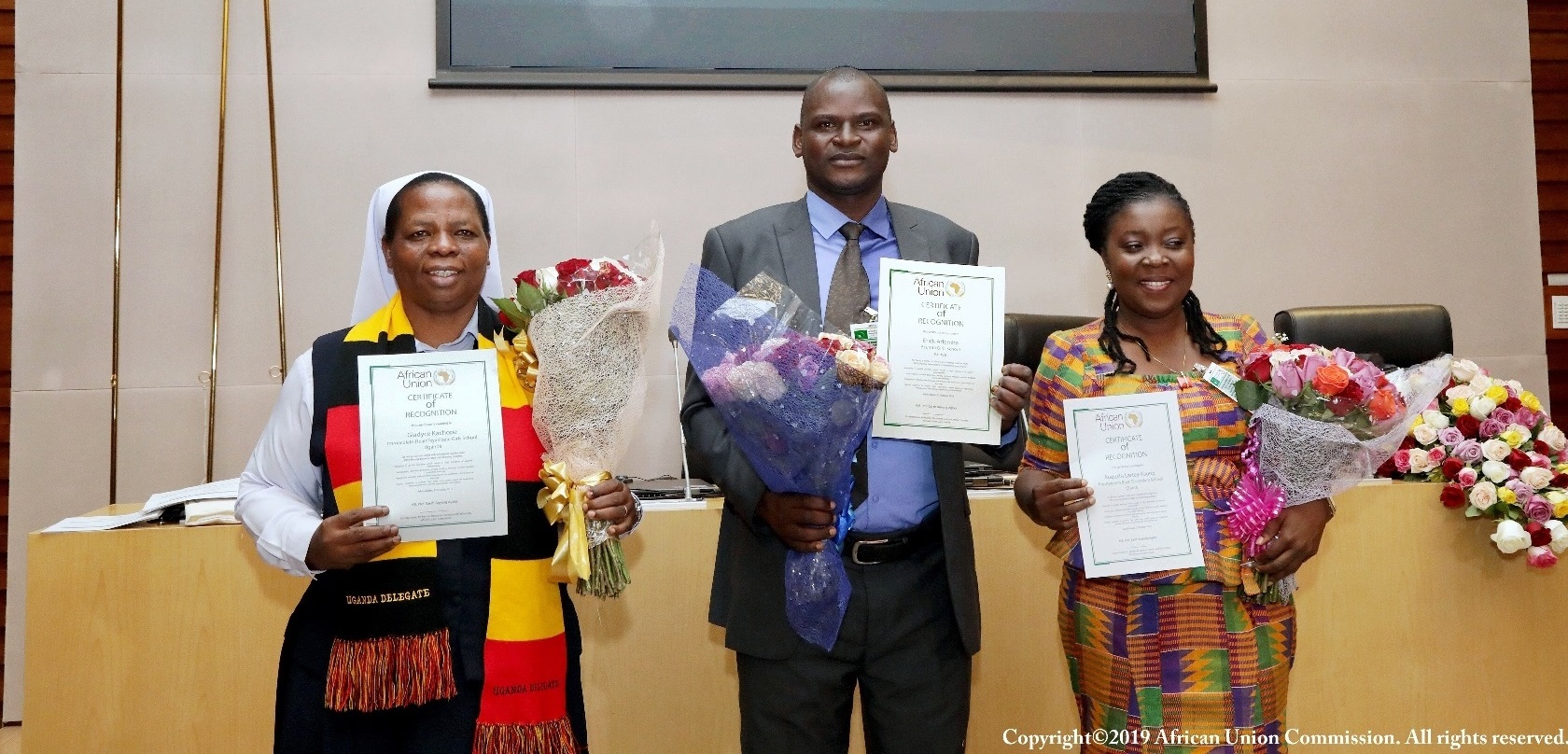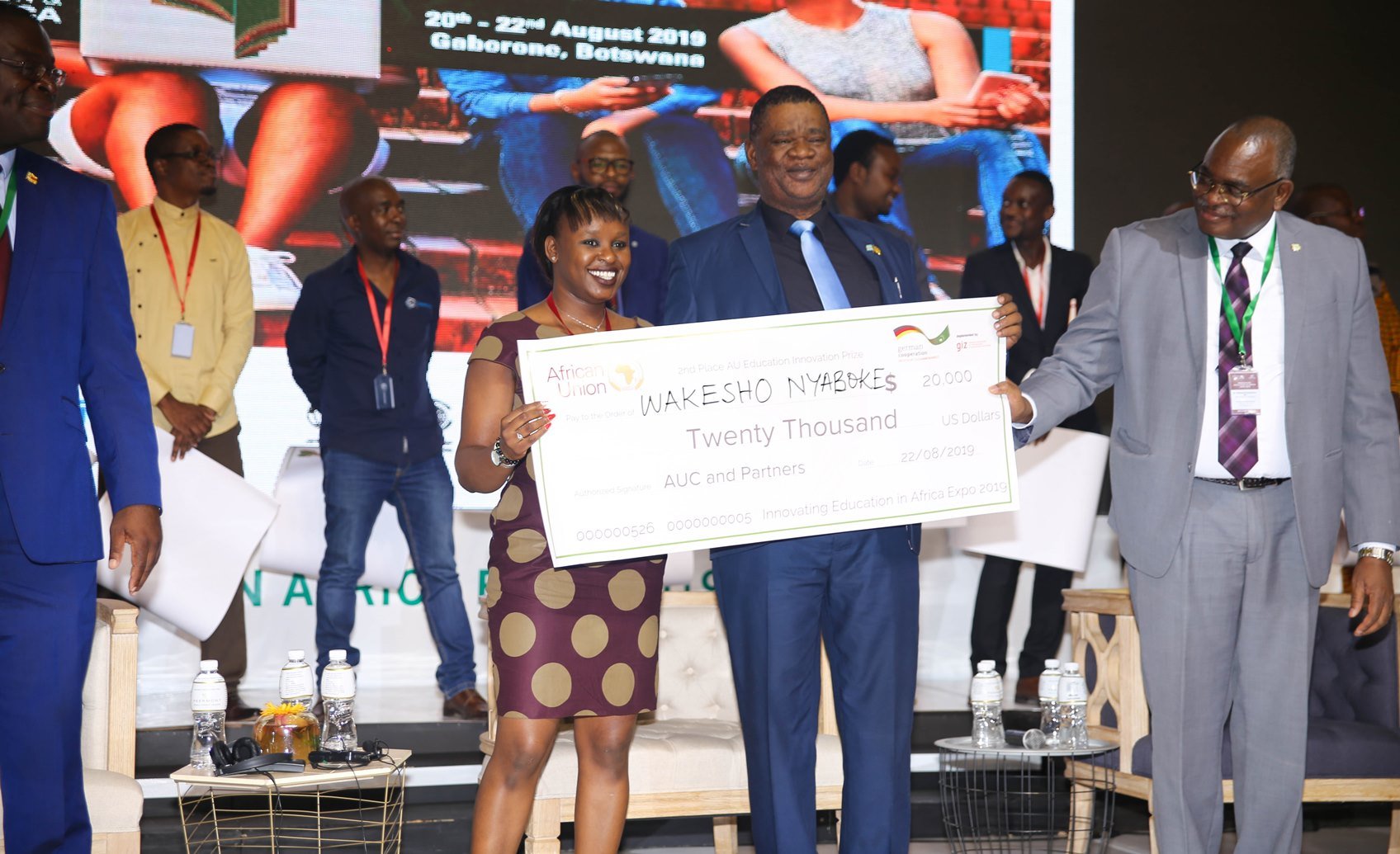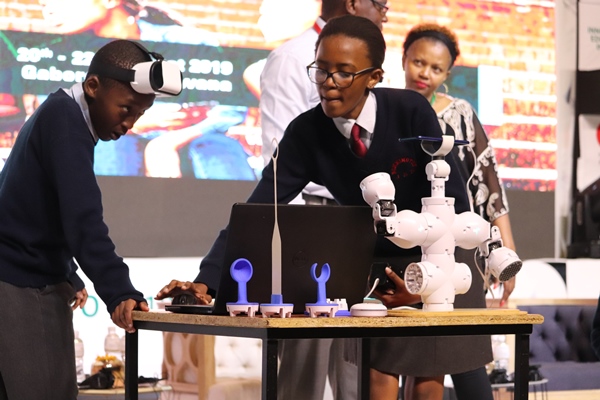The information provided below was submitted as at 2020-06-10 13:33:07 by the Ministry of National Education, Vocational Training, Higher Education and Scientific Research of Morocco in responding to the AU Survey of Member States on Education Sector Response to COVID-19. The information is solely for experience sharing purposes and not to be used for other purposes without express permission of the African Union Commission.
| Country | Morocco |
| Ministry | Ministry of National Education, Vocational Training, Higher Education and Scientific Research |
| Education level handled by the Ministry | Pre-School, Primary, Secondary, TVET |
| Number of Schools in Pre-School | 28721 |
| Number of Schools in Primary | 24253 |
| Number of Schools in Secondary | 5740 |
| Number of Schools in TVET | 755 |
| Does the Ministry have a COVID-19 response plan? | Yes |
| Objectives and Priorities of the COVID-19 response plan | The educational continuity plan aims to offer lessons to students confined to their homes during the covid-19 epidemic, this period corresponds to the 3rd quarter of the 2019-2020 school year. The three cycles and all disciplines are concerned with the production and dissemination of courses. Production takes place at the central level for certification classes and at the regional and provincial levels for other school levels. The programming on the broadcasting channels is done at the level of the central watch committee, through the school television courses broadcast on SNRT channels and by GENIE program teams for telmidtice resources available via the web. The educational offer therefore passes through several dissemination channels: • The school television courses broadcast on the three channels Taqafia, Laayoune and Tamazight of the SNRT, 3400 courses were broadcasted between March 16 and June 2, 2020 • Telmidtice videos via the Internet https://telmidtice.men.gov.ma/ , the videos are downloaded for free on all media (phones, computers, tablets), a free streaming viewing solution is being finalized. As of June 2, 7,000 free educational resources are available, divided into 6,200 courses, 800 exercises and 450 exams. • Virtual classes created through www.taalim.ma , a Massar service, which allows teachers to be in contact with their students in a digital workspace, 779,836 virtual classes have been created. • The distribution of educational support booklets for Arabic, mathematics and French for the six primary school grades to one million rural students. These activity booklets are accessible to all students in digital format on the ministry portal https://www.men.gov.ma/Ar/Pages/EnsPrim_soutien0520.aspx • Note that the 8 million pupils have textbooks, which are their first learning aids. It should be recalled that, thanks to the royal initiative 1 million schoolbags, which concerns the donation of textbooks to 4 million pupils, access to textbooks is widespread. |
| Percentage estimate of Schools Closed | 90-100 |
| Percentage estimate of Schools Offering Distance/Virtual Education | 90-100 |
| Percentage estimate of Students who are currently receiving Virtual/Distance Education | 90-100 |
| Methods for the provision of Distance/Virtual Education | Lessons are scanned and sent through email for students to complete., Interaction through WhatsApp/Telegram or other social messaging applications between students and teachers, Online lessons via government owned e-learning portal, TV |
| Specific Innovations which are being implemented | Thanks to the partnership with institutions and foundations: • Access to resource platforms free of charge for students who can download OER for free. • Donation of tablets and connection to pupils in rural areas. |
| Partners which are supporting the Ministry of Education to respond to COVID-19 | EU, GIZ, UNICEF, USAID, The Mohammed VI Foundation for the protection of the environment, Moroccan Foundation for the Promotion of Preschool Education, ISESCO |
| Is there a plan for reopening schools? | Yes |
| Does the reopening plan include a back to School campaign? | Yes |
| Does the reopening plan include catch-up strategies for the school calendar and or curriculum? | Yes |
| Objectives and priorities of the plan to reopen Schools | In light of these elements, the following decisions were made: • Students do not join schools before September; • Face-to-face school activities will be limited to the organization of the final Baccalaureate exam: • The regional exam for the first year of the baccalaureate will be postponed to September 2020. In the interests of equal opportunities, the subjects of the Bac 2020 exams will relate exclusively to courses given in person before the suspension of studies following the coronavirus pandemic "COVID-19", that is until March 14, 2020. Intensive support courses will be scheduled remotely to help learners to review and prepare for their exams. • The ordinary session of the national exam of Bac 2020 in Morocco will take place in two poles: July 03 and 04, 2020 for the humanities and human sciences and original education branches and from July 06 to 08, 2020 July for the scientific and technical branches and the vocational baccalaureate. The national exam for free candidates will be organized according to the same schedule for the other school pupils. • For the other school levels of the 1st primary year (grade 1) in the common core of the qualified secondary (grade 10), quizzes grades and continuous assessments, carried out face to face, will be considered. • The studies will continue through pedagogical continuity, until the end of the school year for the benefit of all levels. Several necessary preventive measures will be implemented: • Sterilization of establishments, • Supply of masks, hydro alcoholic gels and means to measure the temperature, • Respect social distancing, • Use of very large rooms or spaces, such as sports complexes. |
| Is there a separate strategy/strategies for girls to catch up on their education due to the impact of COVID-19? | Yes |
| Challenges that have been encountered by the Ministry while responding to COVID-19 | Availability of Virtual Learning Technology Hardware and Infrastructure, Availability of Virtual Learning Software and learning platform, Internet Connectivity to support deployment Virtual Learning platforms |
| Date Submitted | 10-06-2020 |
If you are interested in contacting the Ministry for further information, please contect This email address is being protected from spambots. You need JavaScript enabled to view it.. Please note that any secondary use of this data is not allowed without seeking express permission of the African Union Commission.

















